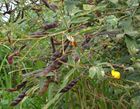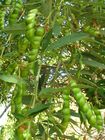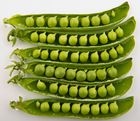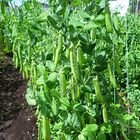Note: This is a project under development. The articles on this wiki are just being initiated and broadly incomplete. You can Help creating new pages.
Difference between revisions of "Semecarpus anacardium - Agnimukh, Marking nut"
(→References) |
(→How to plant/cultivate) |
||
| Line 42: | Line 42: | ||
==How to plant/cultivate== | ==How to plant/cultivate== | ||
| − | + | Plants are adaptable to a variety of tropical and subtropical conditions.An easily grown plant requiring very little attention once established, it succeeds in soils that are too poor to support other crops Tolerates a pH in the range 4.5 - 6.5.Dioecious - both male and female forms need to be grown if fruits and seed are required.<ref name="How to plant/cultivate"/> | |
==Commonly seen growing in areas== | ==Commonly seen growing in areas== | ||
Revision as of 13:46, 4 April 2018
Semecarpus anacardium is a native of India, found in the outer Himalayas to Coromandel Coast. It is closely related to the cashew.
Contents
Uses
dyspepsia, Strengthen the lungs, arthritis, aphrodisiac, piles, sexual health, skin disease, kapha, Destroys worms, wounds, Reduce urine flow.
Parts Used
Chemical Composition
Anacardic acid, cardol, catechol, anacardol and fixed oit, sernicarpoi, bhilawanol.[1]
Common names
| Language | Common name |
|---|---|
| Kannada | Greu, Geru-kayi |
| Hindi | Bealata, bela, bhilava |
| Malayalam | Thennukota, Alakcueer |
| Tamil | Kalakam, Kavaka |
| Telugu | Ballatamu |
| Marathi | NA |
| Gujarathi | NA |
| Punjabi | NA |
| Kashmiri | NA |
| Sanskrit | Angika, Agnimukh |
| English | Marking nut |
Habit
Identification
Leaf
| Kind | Shape | Feature |
|---|---|---|
| Simple | tri-foliolate,lanceolate | Leafs are 2.5-13.5 cm long to 1-5.5 cm wide. The leaflets are green above and a silvery grey-green beneath and are covered on their lower surfaces in small yellow glands |
.[2]
Flower
| Type | Size | Color and composition | Stamen | More information |
|---|---|---|---|---|
| Unisexual | 14cm long | yellow, papilionaceous | Typical of species belonging to the Leguminosae subfamily Papilionoideae, and resemble, for example, the pea ( Pisum sativum ) flower. Each flower has 10 stamens, 9 of which are fused into a partial tube, with the tenth stamen free. The ovary is positioned above the sepals, petals and stamens. The style is curved | {{{5}}} |
.
Fruit
| Type | Size | Mass | Appearance | Seeds | More information |
|---|---|---|---|---|---|
| straight or sickle | 2-13 cm long x 0.5-1.5 cm | The seeds are 4-9 mm x 3-8 mm and can be white, brown, purplish, black or mottled.
|
many seeds | {{{5}}} | {{{6}}} |
Other features
List of Ayurvedic medicine in which the herb is used
- Vishatinduka Taila as root juice extract
Where to get the saplings
Mode of Propagation
How to plant/cultivate
Plants are adaptable to a variety of tropical and subtropical conditions.An easily grown plant requiring very little attention once established, it succeeds in soils that are too poor to support other crops Tolerates a pH in the range 4.5 - 6.5.Dioecious - both male and female forms need to be grown if fruits and seed are required.[3]
Commonly seen growing in areas
Semi-arid tropics, Humid areas, cold-free zones.
Photo Gallery
References
External Links
- Pages that are stubs
- Ayurvedic Herbs known to be helpful to treat dyspepsia
- Ayurvedic Herbs known to be helpful to treat Strengthen the lungs
- Ayurvedic Herbs known to be helpful to treat arthritis
- Ayurvedic Herbs known to be helpful to treat aphrodisiac
- Ayurvedic Herbs known to be helpful to treat piles
- Ayurvedic Herbs known to be helpful to treat sexual health
- Ayurvedic Herbs known to be helpful to treat skin disease
- Ayurvedic Herbs known to be helpful to treat kapha
- Ayurvedic Herbs known to be helpful to treat Destroys worms
- Ayurvedic Herbs known to be helpful to treat wounds
- Ayurvedic Herbs known to be helpful to treat Reduce urine flow
- Herbs with Fruits used in medicine
- Herbs with Leaves used in medicine
- Herbs with Pericarp used in medicine
- Herbs with common name in Kannada
- Herbs with common name in Hindi
- Herbs with common name in Malayalam
- Herbs with common name in Tamil
- Herbs with common name in Telugu
- Herbs with common name in Sanskrit
- Herbs with common name in English
- Habit - A small erect shrub
- Index of Plants which can be propagated by Seeds
- Index of Plants which can be propagated by Cuttung
- Herbs that are commonly seen in the region of Semi-arid tropics
- Herbs that are commonly seen in the region of Humid areas
- Herbs that are commonly seen in the region of cold-free zones
- Herbs





